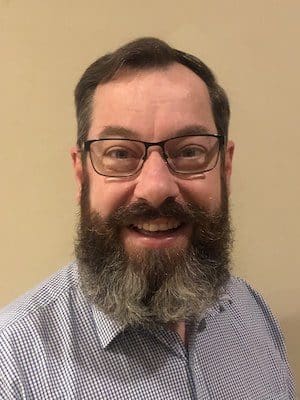We’re in a celebratory mood today for two good reasons: The Centre for Christian Ethics has turned two, and the so-called Breen Bill has been defeated.
Yesterday [March 1] marked the second anniversary of the establishment of the Centre for Christian Ethics as a research and resource facility serving the Australian church and the nation.
The Centre’s mission is condensed in our new slogan, launched today: “Connecting your faith with your world.” We do this in five ways: through focused research, strategic writing, public speaking, political lobbying and teaching.
Over the last 24 months, with limited resources, the Centre has made an outstanding contribution to the national conversation on social and ethical issues. We have significantly raised the profile of ethics in the churches, and delivered high quality resources to thousands of individuals and groups throughout Australia and around the world. We are now poised to develop these strengths and extend our activities in new directions. These are exciting times!
The Centre’s birth and continued vitality, under God, are due to the inspiring vision and commitment of the leadership of the Baptist Union of NSW and Morling College, and the extraordinary generosity of our financial partners. We also deeply value the support of our readers–through your prayers, in the many ways in which you use our resources, and by your financial support.
Almost 30 years ago, W. Fred Graham, a professor of religious studies at Michigan State University, observed that within the church there were “many theologically concerned Christians who have never had a serious thought about transforming the world, and a goodly number who want to transform the world, but–disenchanted with traditionalism and fundamentalism–know no theology.… [The church’s] task is to proclaim the total gospel message, which affirms the world in order to transform it.”
While the pace of life and the complexity of the issues facing us have rapidly changed, these two problems identified by Graham remains with us. It is my hope that the Centre for Christian Ethics will encourage and resource “theologically concerned Christians” to follow Jesus by engaging in biblically informed social action, while at the same time offering “theologically disengaged Christians”–and others–good biblical and theological foundations for ethical engagement and social action.
The Centre is well placed to do this. At its heart is a strong confidence in the Bible as the word of God for today. Its mission is shaped by the life and teachings of the Lord Jesus Christ and empowered by the Holy Spirit.
As a Baptist agency, the Centre fosters a radical evangelical orthodoxy in the free-church tradition, while remaining open to the insights and emphases of other church traditions. Pray with us that the Centre remains true to God, and to God’s word, and to its primary calling: to connect your faith with your world.
The second cause for celebration today is yesterday’s defeat of a private members bill in the NSW Legislative Council (the “upper house”), which the Centre for Christian Ethics has been working at behind the scenes for many months. The Anti-Discrimination Amendment (Religious Tolerance) Bill 2005 was soundly defeated today by 23 votes to 5 votes.
In May 2005 I released a critical analysis of Peter Breen’s bill, suggesting that its provisions were counter-productive and that there were better ways to combat religious vilification in Australia. I noted that NSW already had effective anti-discrimination and defamation legislation, and argued that the heart of the matter was the substantive difference between religious identity and other cultural identities such as race, gender and sexuality, and the view that the state must proceed with caution in legislating on religious matters.
While it appeared to promote religious tolerance in a multicultural society, the bill actually threatened freedom of speech on religious issues. As law, it would certainly have increased hostility between mutually incompatible religious traditions and suppressed open discussion and debate.
Religious identity may or may not be a matter of personal choice, but it involves the holding of subjective beliefs and opinions, and often the propagation of such beliefs and opinions, which may offend persons of another religious identity, and which may appear extreme to other reasonable persons. Legislation that denies a person the right to practice their faith in good conscience is bad law, and members of the NSW Legislative Council are to be applauded for rejecting the Breen bill.
It is interesting to note that the British parliament recently rejected similar legislation (albeit by a single vote), and there are moves to address or repeal Victoria’s draconian religious vilification laws–the existence of which were clearly the impetus for and basis of Peter Breen’s bill.
On Sept. 15, 2005, toward the end of his second reading speech on the bill, Breen claimed that “people of all religious beliefs need the protection of anti-discrimination laws, not just for their own benefit, but for the benefit of everyone who considers that freedom of thought, conscience and belief is a basic right of all citizens that needs to be protected from the reach of tyrannical governments.”
He is right on this count, but he fails to mention that we already possess effective anti-discrimination and defamation laws. What we need is protection of freedom of speech from the reach of tyrannical governments and misguided politicians intent on suppressing truth and light in the name of enlightened ideals or precedents elsewhere. We need informed and politically active Christians who are willing and able to address the compelling social and ethical issues of our times.
And we need agencies such as the Centre for Christian Ethics to offer moral support and practical resources to all who share the passion and conviction that this is God’s world, and it is imperative that we connect our Christian faith with our world in meaningful and productive ways.
Rod Benson is director of the Centre for Christian Ethics at Morling College in Sydney, Australia.

